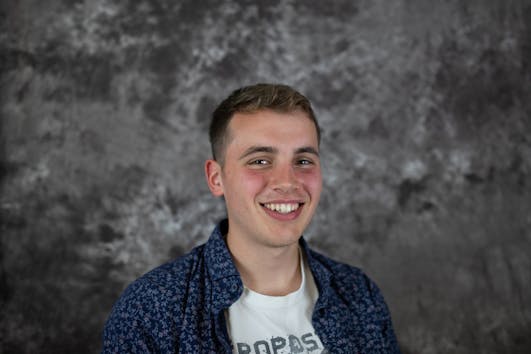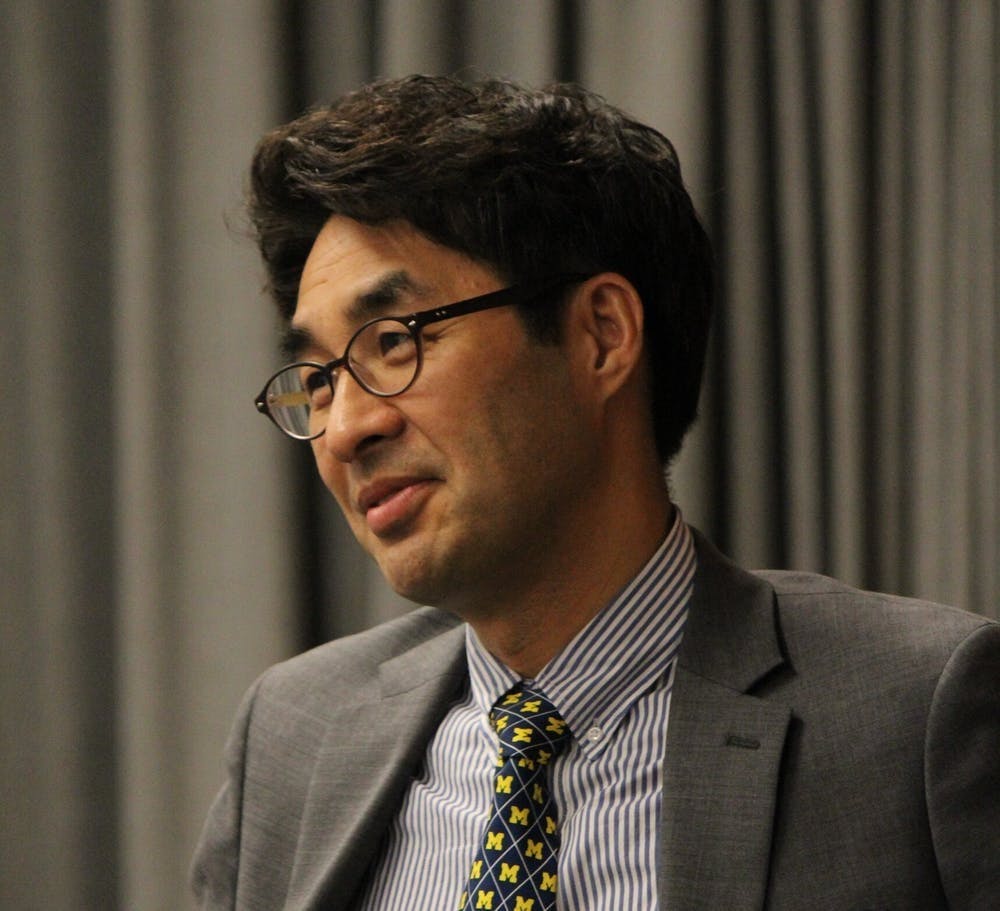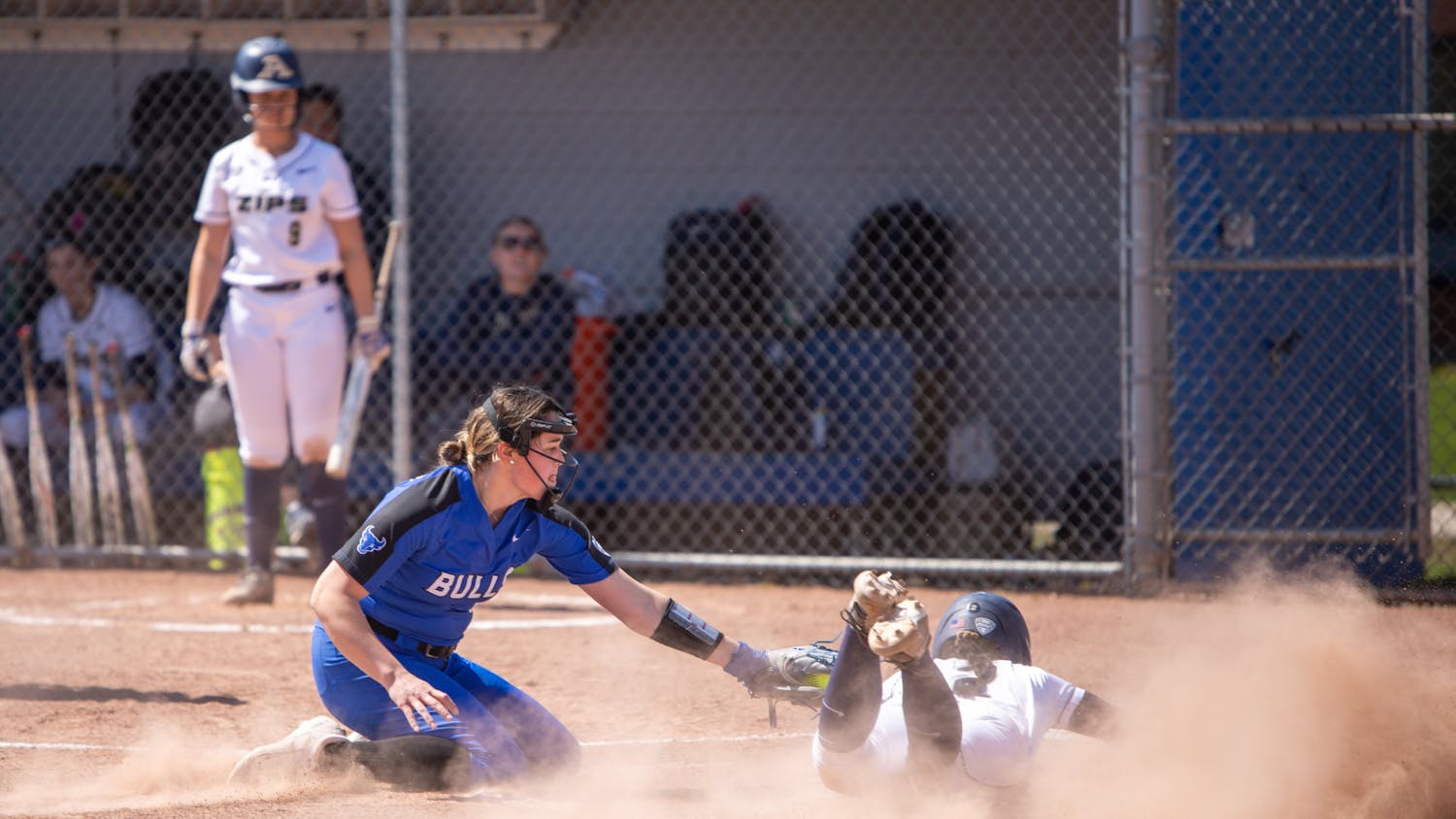Nojin Kwak became vice provost of international education this August, replacing John Wood, who had served as interim vice provost since 2018.
In his new role, Kwak is overseeing International Enrollment Management, International Admissions, International Student Services, the Office of Study Abroad Programs and the university’s Singapore campus, among other offices and programs.
Kwak sat down with The Spectrum last week to discuss his aspirations for a more robust on-campus international community, what he’s learned from speaking with international students and how his personal experience as an international student have informed his work.
The following has been lightly edited for length and clarity:
The Spectrum: I know you’ve only been here for four months, but what initiatives have you enacted so far?
Nojin Kwak: “I have three broad [goals]: One is expanding faculty research in global and international areas because great research is connected to giving really valuable experiences for students, who are learning from those who do state-of-the-art research. My second area is expanding global experience opportunities on campus and abroad. These are really important for students. Because of the pandemic, I really wasn’t able to do much on campus in terms of really having a robust [study abroad] program, but we’re putting a lot of effort into thinking about the future of study abroad. We are thinking a lot about how we can expand faculty-led study abroad programs, so that there’s a connection between what you learn in the classroom and what you experience abroad. The third one, which is also very important, is wellbeing and inclusion, including the well-being of the international members of the university community. ...There are a lot of real, psychological challenges that students, faculty and staff have when they come and join the university community, so we are exploring many different ways to help them transition. And I started exploring mental health because that’s particularly important for international students. And another [aspect of well-being is] inclusion. [We have to figure out] how we could have this sense of community membership equally felt by all students, where it doesn’t matter where you’re from. I have a lot of experience with engaging [different] student groups, and when they come together, they learn from each other and benefit from that. International students are not guests. There’s no primary members or secondary members, we are [all] members of a community. I was an international student many decades ago, and I’ve tried to reflect on what I experienced as a student coming from South Korea. That’s the first time that I was surrounded by people I really didn’t know and who were very different from me. And there was a sense of being lonely, a sense of longing for my home country and pressure to fit in. So there are challenges in addition to the academic challenges of studying in a foreign language. So, I try to reflect on my own personal experiences and how my role here could be at least a positive factor for student experiences. …[And] everybody is an international student. ...Being ‘international’ is not a label for a particular group. All of us are international; we are part of an international community. Once we realize that being ‘international’ isn’t a label for a particular group, that it’s more or less a shared identity, that’s when we have really meaningful conversations.”
TS: Could I ask you a little bit about some of the specifics of what you’ve done to achieve some of these goals? I know you’ve only had the job for four months, but what have you done to expand global and international research or pursue your other goals?
NK: We launched a pilot program, it’s called the international faculty launch committee. It is designed to support and provide a system for international faculty in their first years [at UB] with a confidential and supportive environment. We launched two pilot committees, one is in the engineering school, the other is in the College [of Arts and Sciences]. We’ll see how it goes, but it’s meant to show that there is a community of support for international faculty when they start their careers here. We’re also examining various on-campus practices. For instance, student orientation for domestic students happens throughout the summer. International students cannot be here throughout the summer. They can only [come] within 30 days from the start of semester, so they cannot participate in regular orientation and may not get the same experience. So, I’m working with Student Life [to figure out] how to provide the same experience for international students going forward.”
TS: How often do you meet with students?
NK: “I do not meet [with them] as much as I would like. That’s limited. I do not teach, so that’s one limitation. I have my research lab in the Department of Communication. Our meeting is every week, so I meet members of our group every week, and at times I stop by the department to talk to students or faculty. But that’s an area that I would like to [improve in].”
TS: Do you have any plans to talk to more students?
NK: “I want to talk to [more] international students particularly. I have my own experiences, but my experiences are from a while ago. I spent a significant amount of time interacting with students at [the University of] Michigan because I was a department chair, and I taught as well… I wasn’t able to continue that, at least up to this point at UB. But the challenge here — or excitement here — among students might be different because they are at a different institution. First, I want to reach out to the student groups here and see how they perceive their life experience here and what they want to see.”
TS: Loneliness and isolation have been long-standing problems among international students at UB. What are you hoping to do or what have you done to address this?
NK: “Well, so far, I’m still thinking about what to do. In my former institution, we gave space, time and a sense of ownership to students, so that they could share their unique experiences and unique culture. Cultural events work really well. ...I fully intend to do that. I think they worked at Michigan, so I really want to explore that [here].”
TS: Have you had conversations with other administrators about this problem?
NK: “...There is not a meeting where I do not have a conversation about how we could be more supportive of international students. ...But because my office is the one that’s really committed to that cause, obviously, we have to take leadership.”
TS: International enrollment is up this year as compared to last year, but it’s been declining for the past couple of years. Why do you think that is?
NK: “There’s a significant increase, if you look at the last 10 years, until 2016-17. Then there’s a little bit of decline. But these two years are very unusual because they’re during the COVID-19 pandemic, so I think we need to disregard all of these numbers. That decline was not huge, and [most other] schools experienced declines in the last couple of years. It’s probably fair to characterize it as declining numbers, but it didn’t increase as much as it did in the past. It’s a plateau, almost. But if you look at the COVID-19 years, it went down significantly. So, this will be interesting. It’s a very important time to think about the future because... what the picture will be like in the next two to four years is to be known. So, I cannot really predict what’s going to happen, however, the effort to recruit international students will continue.”
TS: Can I push you on that a little bit? You said that the decline wasn’t significant, but it was happening before the pandemic, and our ranking in universities with the most international students has declined over the past 15 years. Do you think there’s a bigger problem here?
NK: “I cannot really pinpoint what the reason was, but that’s something that universities are aware of. ...The Open Doors Report with international enrollment data will come out soon. We were 27th [in terms of international enrollment] last year, and we’re 27th this year. So, at least if there is a decline in UB’s ranking, it kind of stops. We don’t know what the future is like based on just that graph, but there will be an effort to understand what’s happening. And as a new person coming in here, I’m interested in long-term trends, why something is the case and what we could do better. And although recruitment is different from student life, they are interconnected. If your life here is not really that encouraging, then you may not recommend UB to other students who want to come to the United States. Wellbeing, inclusion and giving space and time are all interconnected.
TS: UB is receiving less money in state aid, and international students generate a lot of revenue for the university. Is this an area of concern for UB administration or for you?
NK: “So, personally, I think the mission of the university is giving students an education and not trying to monetize students. I’m trying not to change the course of action, just because we look at students as money. That’s really wrong, and I don’t think we have that philosophy here. What I think is really important is not to set a certain [enrollment] number as a goal, but to set a certain goal in education quality and reach that goal. I saw this as a department chair in my previous role. You want to increase your major enrollment, but if you really invest in quality education in terms of classroom experiences, internship opportunities and networking with alumni, then somehow more students want to join your department.”
TS: I know this isn’t necessarily your job per se, but are you feeling pressure from other people in administration to increase international enrollment?
NK: “No, I don’t experience that pressure.”
Grant Ashley is a senior news/features editor and can be reached at grant.ashley@ubspectrum.com

Grant Ashley is the editor in chief of The Spectrum. He's also reported for NPR, WBFO, WIVB and The Buffalo News. He enjoys taking long bike rides, baking with his parents’ ingredients and recreating Bob Ross paintings in crayon. He can be found on the platform formerly known as Twitter at @Grantrashley.





